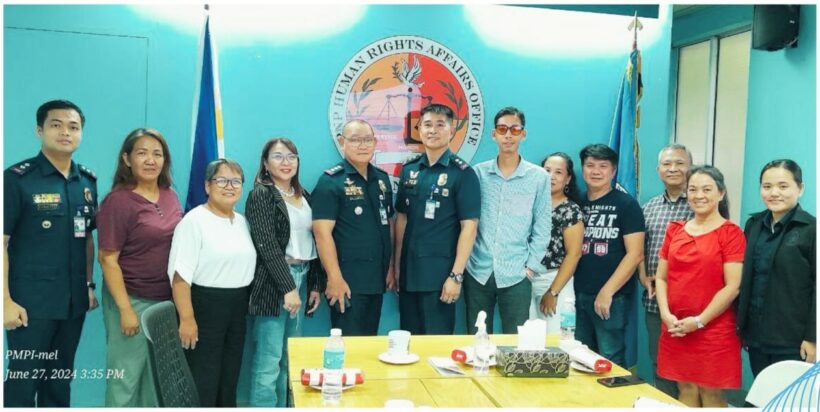The Zambales Ecological Network (ZEN), in collaboration with Project Paglingap—a joint initiative of Philippine Misereor Partnership Inc. (PMPI) and Balay Rehabilitation, funded by the European Union—organized separate meetings with the AFP Center for Law of Armed Conflict (AFPCLOAC) and the Human Rights Affairs Office of the Philippine National Police (PNP-HRAO) last June 27, 2024. The meetings aimed to introduce Project Paglingap to the security forces as a civil society undertaking that promotes ‘protective care’ for environmental human rights defenders (EHRDs) and to secure protective support from authorities as they exercise their rights to engage in environmental advocacy.
During the meetings, several EHRDs raised their security concerns, such as harassment, surveillance, and red-tagging for speaking out against the ill effects of the sand dredging activities in their coastal waters. According to the EHRDs, the provincial government of Zambales has authorized the dredging activities under the Department Administrative Order 2019-13 of the Department of Environment and Natural Resources (DENR) to rehabilitate three river systems that have been covered by lahar following the massive eruption of Mt. Pinatubo in 1991. They also said that the dredging operations have already extended beyond the river dredging zones, to the detriment of the livelihood, health, safety, and well-being of affected residents.
The extractive activities have also threatened the corals and habitat of the Pawikan and Sabalo, a full-grown milkfish measuring 60 centimeters in length that are deemed as endangered by fisheries authorities. The dredging operations have been temporarily suspended when the affected residents in San Felipe protested against their violation of environmental regulations.
Responding to the security and protection challenges faced by EHRDs, the military and police officers respectively affirmed their mandate to protect the rights of civilians and assured them that they do not practice nor condone red-tagging by their forces, especially following the recent Supreme Court decision declaring “red-tagging, vilification, labelling, and guilt by association threaten one’s right to life, liberty, or security.” The decision also identifies the issuance of a writ of amparo as a direct remedy to address the threats caused by these acts, thereby also covering enforced disappearances and extrajudicial killings.
The CLOAC officers also said that soldiers who approach civilians ought to be wearing their military uniforms and can be asked to show their proper identification to verify their identities. They encouraged the EHRDs to send their formal reports of human rights violations to their office, particularly if it involves military personnel, so that they could properly act on it.
For their part, the HRAO officers said that civilians may decline the invitation of the police to go with them if they do not have a valid court order. They added that policemen who have been proven to have committed human rights violations could face criminal and administrative sanctions.






